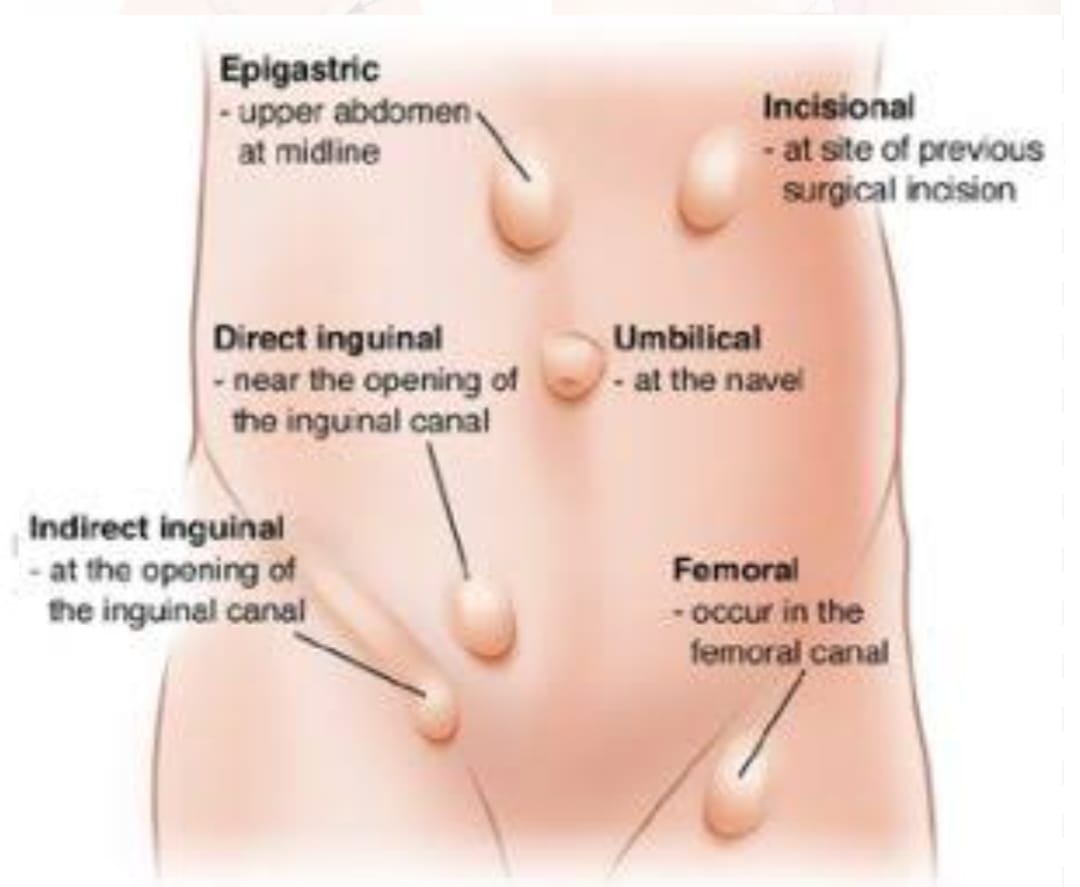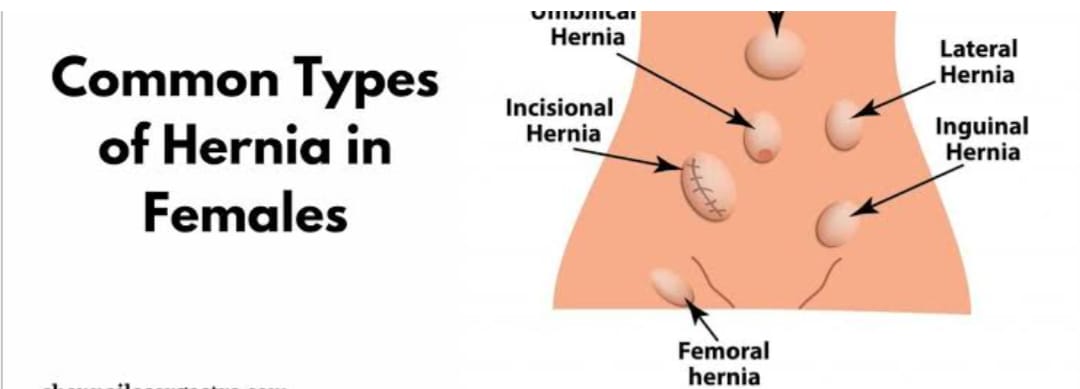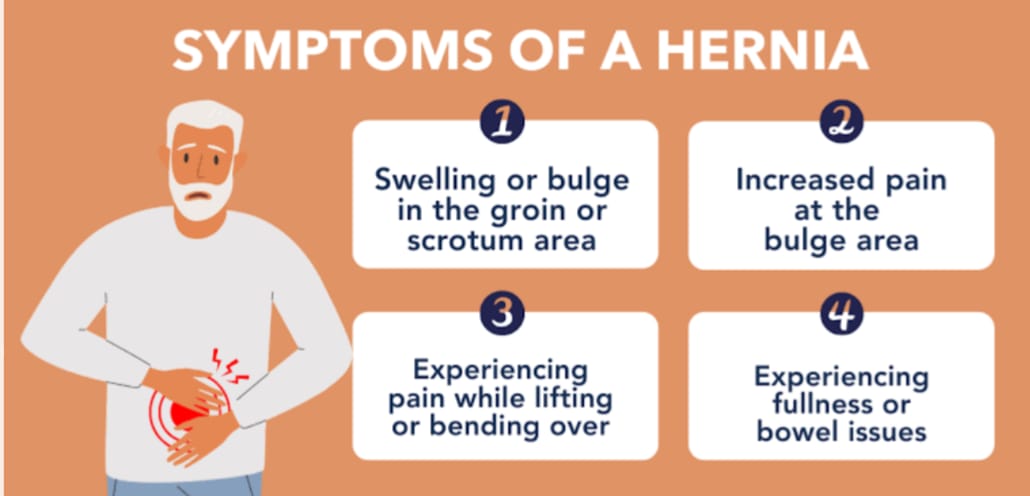Hernia
A hernia occurs when the contents of a body cavity bulge out of the area where they are normally contained. These contents, usually portions of intestine or abdominal fatty tissue, are enclosed in the thin membrane that naturally lines the inside of the cavity. Hernias by themselves may be asymptomatic (produce no symptoms), but nearly all have a potential risk of having their blood supply cut off (becoming strangulated). Emergency surgery is in indicated in case of strangulation.
Hernia may or may not present either with pain at the site, a visible or palpable lump, or in some cases by more vague symptoms resulting from pressure on an organ which has become "stuck" in the hernia, sometimes leading to organ dysfunction. Fatty tissue usually enters a hernia first, but it may be followed by or accompanied by an organ. Most of the time, hernia develop when pressure in the compartment of the residing organ is increased, and the boundary is weak or weakened.
There are different types of hernias:-
Congenital and acquired.
• Inguinal
• Femoral
• Umbilical
• Incisional
• Diaphragmatic
Homoeopathic medicine:-
Homoeopathic medicine may be helpful and surgery can be prevented if the medication starts earlier stage of disease. It is possible to cure hernia without surgical intervention. But totally depend on the case and at what stage the problem is.



